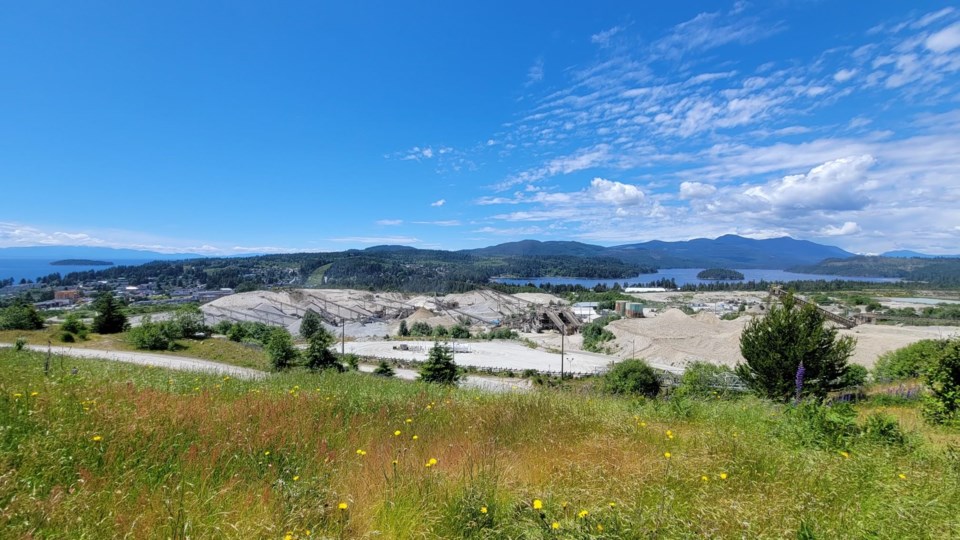shíshálh Nation's Lower Crown water reservoir project received an infusion of $1.2 million from the Community Emergency Preparedness Fund (CEPF) - Disaster Risk Reduction - Climate Adaptation funding stream, according to a Sept. 18 announcement from the BC government.
That proposed piece of water infrastructure would capture water from Chapman Creek during high flow seasons and store it for use during drier portions of the year, thereby improving water security for people living in the area. The Nation announced plans to explore the project in May 2023. Since that time, it has been working with the Sunshine Coast Regional District (SCRD) to further plans to secure funding for the reservoir and related projects that would see the new water storage area connected to regional water system’s Chapman Creek water treatment plant and distribution system.
The Lower Crown project is one of two reservoir projects that the Nation is looking into. In July 2023, costs for those pieces of infrastructure and other requirements to bring stored water online via the SCRD's Chapman water system were estimated in the $125 million range according to SCRD documentation.
"We want to thank the Province for their support and funding to move the water security project for the Sunshine Coast along," said lhe hiwus yalxwemult (Chief Lenora Joe) shíshálh Nation. "By working with our partners at the Sunshine Coast Regional District, we know we can make transformative change creating a better future for all residents. It is only through unifying our communities and working with partners like B.C., that we can tackle climate change and other significant challenges of our time."
The money for shíshálh was one of 78 project CEPF - Disaster Risk Reduction - Climate Adaptation grants announced. A total of $59 million was dispersed to 65 communities.
Planning efforts in Gibsons also funded
Another lower Sunshine Coast grant recipient was the Town of Gibsons, which secured $300,000 for the design of disaster-risk and policy-assessment models to inform planning and policy around risks from climate-related issues such as flooding, erosion and salt-water intrusion to lessen future emergency costs and adapt to climate change.
In the province’s press release, Gibsons mayor Silas White stated that funding “will support the town in developing reliable wildfire, flooding, wind and sea-level rise scenarios. This combination allows for a more precise risk assessment under different climate scenarios. The predictive model will incorporate knowledge gained from the town's foundational studies and plans to assist with risk management."
About the funding program
The province has invested $369 million into the CEPF since it was established in 2017. Approximately $279 million has been provided to local governments and First Nations through the CEPF for approximately 2,100 projects.
The CEPF supports local governments and First Nations to better prepare for disasters and reduce risks from natural hazards in a changing climate in several categories and is administered by the Union of British Columbia Municipalities (UBCM) on behalf of the province.



